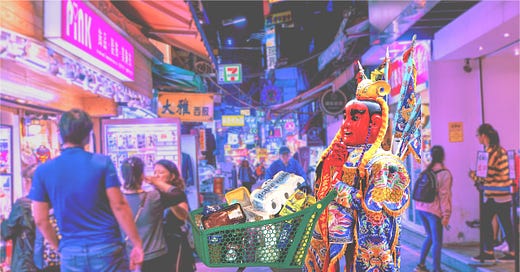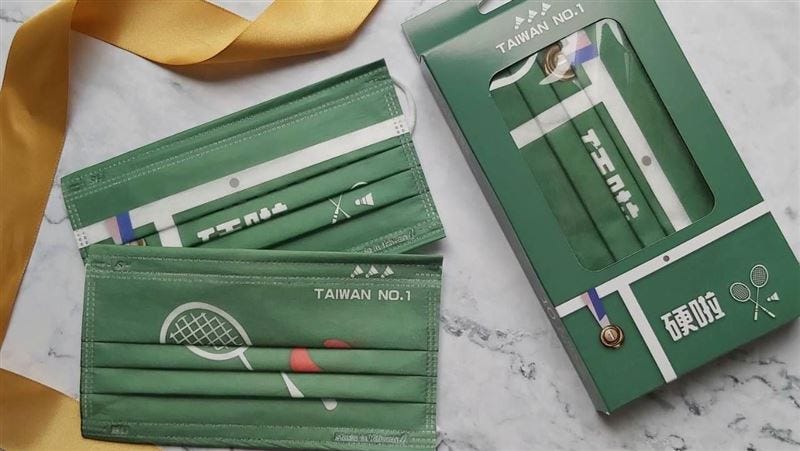Taiwan is generally not considered a sexy retail market in Asia. Its boom period and glory days are seemingly in the past, and appears as a bit of a priggish old maid compared to China’s sultry rapid growth and innovation. It also doesnt have the youthful large populace found in emerging markets such as Indonesia and Thailand. It is common for APAC head offices to relegate Taiwan to being a second priority or shoehorned into a vague ‘Greater China’ retail strategy.
This is not really unreasonable, considering Taiwan is in pretty much every sense, a matured retail market. The nation now has the lowest birth rate in the world(1.07 children per woman) and is set to become a super-aged society in 2025, with over 20% of the population being over 65. Older consumers tend to be frugal, preferring to invest in real-estate over shopping. They are also conservative with technology, an obstacle to adoption of some of the new mobile-driven retail innovations prevalent in China and South East Asia.
Taiwan’s Advantages as a Retail Market
With a population of 23 million, Taiwan retail may be a lot smaller than neighbouring countries, but there is a hefty amount of spending power and consumers are relatively flexible and open to new products. For both overseas and domestic brands, Taiwan has a lot of advantages as a retail market, with rewards being high and barriers-to-entry comparatively low.
Consumers in Taiwan have money to spend, GDP per capita(PPP) in 2021 is $59,398, the 22nd highest in the world and only slightly behind Hong Kong and Macau. While the cities may look shabby and wages still criminally paltry, savings and investments are high and consumers are willing to spend on quality.
Moreover, Taiwanese are both relatively well-educated and worldly, especially when compared to less developed parts of Asia. Over 60% of the population have a tertiary education, and around 90% of students now go on to attend university. Overseas travel has almost become an obsession, with country regularly ranking in the world’s top fifteen in the world in terms of outbound tourism expenditures(pre-Covid).
For overseas brands, this equals a consumer base that is savvy and curious, meaning its easy to introduce new assortments without having to worry about much cultural resistance. This is usually not the case in Japan, and a world away from China, where brands are forced to fret over angering nationalistic netizens. It also means that in general there is less of a need for tailoring of products and marketing for the local whims.
The Great Taiwanese Turnaround
The main reason Taiwan retail is not considered exciting, is generally a sense that the country has already peaked and has been stuck in a general state of stasis since the early 2000’s . Taiwanese returning home from years abroad are often disappointed by how little has changed. In terms of retail, local E-commerce players like PCHome are perennial laggards with user experiences that are stuck in the dark ages. Additionally the implementation for new technologies like mobile payments has been slow.
Taiwan is starting to change and the signs are here that a twenty year long period of malaise is finally coming to an end. The government has recently raised GDP growth forecasts for 2021, to an 11-year high of 6.09 percent. One key reason for Taiwan’s economic turnaround is of course the stellar COVID response. Another is the increased global demand for Taiwan’s key products, especially semiconductors and laptops.
Also contributing to this economic turnaround is retreat from China by Taiwanese companies, who are increasingly returning home to re-invest in Taiwan. In the last three years the government has launched an extremely successful initiative that encourages companies to expand their investment in Taiwan, in the face of an increasingly hostile business environment in China. As of the end of the 2021, the program has led to 1,082 companies investing more than NT$1.5 trillion (US$54.11 billion).
In the longer term, this change of fortunes is expected to finally stimulate long stagnant wages and restore consumer confidence. For brands and retailers, this can represent new opportunities and growth potential. Many of the Taiwanese returning from abroad are wealthy and will have money to spend. Moreover, as the general economic situation improves, a trickle down effect should be felt in the service sector.
Changing Mindsets and Lifestyles
Not only does there appear to be a change in Taiwan’s economic fortunes, consumers lifestyles are also noticeably in flux. Taiwan’s years of stagnation and flow of money and talent across the strait, diminished people’s hope in the future. Mainstream media and the older generations, derided unambitious youths who chose to stay in Taiwan rather than seeking more prosperous career paths in China or further ashore. People sought escapism in enjoying everyday small pleasures(小確幸) as a distraction from the big picture, of a ship slowly losing its course.
In the least few years Taiwanese have broke free from this lull and become more self-assured and are looking for more meaningful lifestyles. Worldviews and values are becoming increasingly both more cosmopolitan and open-minded. Most noticeably, in 2019, Taiwan legalized gay marriage, the first country to do so in the whole of East Asia.
The entry of Netflix into the market in 2016, exposed viewers to global entertainment choices, and landed a death blow to an already languishing domestic TV industry, at least for younger audiences. Taiwan-focused independent media entertainers and celebrities are also in ascendancy and are surpassing traditional media in terms of popularity. Recent years has seen the rise of a number of podcasts focused on international news and social issues. Taiwan’s YouTube scene is particularly well-developed and many of the biggest stars on the platform are mainstream celebrities. These YouTubers also do not shy away from political topics, eschewing the financial allure of the China market.
Taiwan now has its own popular award ceremony for YouTube and independent media, the Walk Bell John Awards(走鐘獎). It also has the most flourishing podcast scenes in Asia, with a recent surveys revealing that one-in-five Taiwanese listens to podcasts on a regular basis and the number of podcast downloads increased in 579% in January 2021 from the same month the previous year.
As well as the development of a more locally focused, independent media industry, there has also been an increase adoption of less-materialistic consumer lifestyles. Younger consumers are much less interested in big brands and luxury than a decade ago and way less than similar cohorts in metropolitan China. Outdoor activities, such as hiking and camping have become immensely popular with younger consumers, as has environmental and social issues such as sustainability and feminism. Consumers now want unique and meaningful experiences and products.

Another substantive societal development that has seeped into consumer lifestyles is a more sold sense of national identity and pride than in previous years. Young Taiwanese view themselves fully as ‘Taiwanese’ and are finally looking to express this new-felt patriotism. This was evident this year in response to a Chinese government ban on Taiwanese pineapple imports, when patriotic Taiwanese consumers showed support for local farmers by feverishly buying 41,687 tonnes of pineapples in four days. In similar fashion, shoppers bought in mass, commemorative masks to celebrate gold medal success in the badminton men's doubles competition at the Tokyo Olympic games.
At one time, Taiwanese consumers were traditionally lukewarm in regards to buying domestic products, especially when compared to more outwardly nationalist neighbours like Korea and China. Crowdfunding campaigns on local platforms such as ZecZec regularly reach over US $1 Million, reflecting consumers eagerness to support new local brands. Taiwan is one of the only markets that is able to support domestic crowdfunding and foster new brands in this way.
Conclusions
Taiwan is changing, and in 2022, Taiwanese retail will also experience significant upheaval. A thriving economy has meant that dynamism and self-belief are returning to Taiwan and brands and retailers should take note. Taiwanese consumes are confident, curious, increasingly globally-minded and have substantial spending power.
Takeaways for Brands:
Brands need a Taiwan-focused retail strategy. There is no excuse in the current climate to tackle Taiwan retail as a component of a ‘Greater China’ strategy. Tastes and outlooks are incompatible with those in China. Moreover, consumers are generally now sensitive to this and will definitely pick-up on the lack of dedicated attention to the Taiwan market.
Opportunities abound for unique lifestyle brands. As tastes have matured, consumers are rejecting showing-off big brand names. Consumers want to show their individuality and now prefer well-designed, unique products.
Consumers want more enjoyable lives through hobbies and past-times. The outdoor industry in Taiwan has skyrocketed in the last two years. Expect more camping, hiking, canoeing etc in 2022. There is a great opportunity for overseas outdoor brands to enter Taiwan or increase their footprint in 2022.Other hobbies such as cooking, fitness and painting have been similarly popular and this will continue in the next year.
Brands should emphasise values such as meaning and authenticity. Life is more than just getting a good degree, career and accumulating money. Consumers are rejecting traditional Confucian societal and familial pressures and are looking to both express themselves and extract meaning from their lives. Brands should reflect this in their messaging and show explicitly opportunities to transform lifestyles and improve life-quality.
Love Taiwan. Taiwanese are more culturally confident and patriotic than ever before. No matter local or overseas, brands that show that they understand Taiwan and support Taiwan will be embraced by consumers, while at the same-time, those that outwardly endorse Beijing’s ‘One China Policy’ can expect a cold shoulder. This may not have been the case before, but will be moving forward.







Interesting conclusions!!